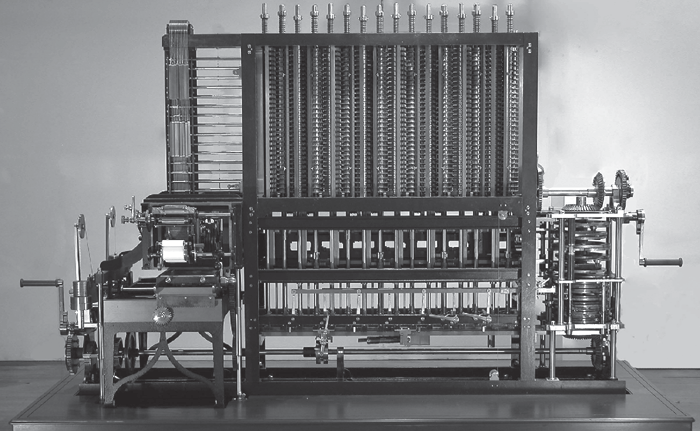Charles Babbage, the visionary mathematician and inventor of the 19th century, laid the foundation for the digital revolution that has since transformed the world. Born on December 26, 1791, in London, England, Babbage was a brilliant polymath whose pioneering work in mathematics, engineering, and computing anticipated the modern age of information technology. This biography article explores the extraordinary life of Charles Babbage, highlighting his significant contributions, ingenious inventions, and the profound impact he had on the evolution of computing.
Page Contents
Early Life and Education
Charles Babbage’s early life was marked by privilege and tragedy. He was born into an affluent family and received a well-rounded education, initially under private tutors and later at Holmwood Academy and King Edward VI School in Totnes. His keen intellect and passion for mathematics became evident at a young age.
Tragedy struck in 1796 when Babbage’s father passed away, leaving the family with considerable wealth. This financial security provided Babbage with the freedom to explore his intellectual pursuits and interests, setting the stage for his future achievements.
In 1810, Babbage entered Trinity College, Cambridge, where he continued his studies in mathematics and embarked on a lifelong friendship with John Herschel, the renowned astronomer. Babbage’s education at Cambridge exposed him to cutting-edge scientific thought and allowed him to build a strong foundation in mathematics and engineering.
Read Also : The World’s First Computer Programmer: Ada Lovelace
The Analytical Engine: Vision of a Computer
One of Charles Babbage’s most significant contributions to the world of computing was his conceptualization of the Analytical Engine, a mechanical device often considered the precursor to the modern computer. Babbage conceived this extraordinary machine in the early 1830s, and it represented a radical departure from the calculating machines of his time.
The Analytical Engine was designed to perform general-purpose calculations, and it featured several groundbreaking innovations:
Store and Mill: Babbage’s design included a memory unit, known as the “store,” for holding data and a central processing unit, referred to as the “mill,” for performing arithmetic operations. This separation of functions is a fundamental concept in modern computers.
Programmability: The Analytical Engine could be programmed using punched cards, making it one of the earliest programmable machines in history. Babbage recognized that by altering the instructions on the cards, the machine’s operations could be changed, offering versatility beyond any previous device.
Alphanumeric Printing: Babbage’s machine was capable of producing alphanumeric output, which was groundbreaking in an era when most machines only produced numeric results.
Conditional Branching: The Analytical Engine featured conditional branching, allowing it to execute different instructions based on specific conditions—a key feature of modern computer programming.
Memory: Babbage introduced the concept of “variables” to store and manipulate data, similar to modern programming languages.
Unfortunately, the Analytical Engine was never constructed during Babbage’s lifetime due to the technical challenges of the era and the lack of sufficient funding. Nevertheless, his visionary design laid the groundwork for future generations of computer pioneers.
The Difference Engine: A Revolutionary Calculator
Prior to conceiving the Analytical Engine, Charles Babbage designed and partially built a machine called the Difference Engine, intended to automatically compute and print mathematical tables. This invention was an important step towards the development of mechanical calculators and represented a significant advance in the state of the art at the time.
The Difference Engine, first conceived in the early 1820s, utilized the method of finite differences to calculate polynomial functions, simplifying the process of producing mathematical tables. Babbage’s design included a large number of gearwheels and mechanical components, all precisely engineered to perform complex calculations with remarkable accuracy.
While the construction of the full-scale Difference Engine was never completed during Babbage’s lifetime, a smaller prototype, known as the “Difference Engine No. 1,” was constructed in 1822 and demonstrated its effectiveness in generating error-free mathematical tables. This prototype showcased Babbage’s engineering prowess and helped secure his reputation as a pioneering inventor.

Struggles and Setbacks
Babbage’s ambitious projects faced numerous challenges, both technical and financial. The construction of mechanical calculating machines in the 19th century required exceptional precision in engineering and manufacturing, which often exceeded the capabilities of the era’s technology. As a result, Babbage’s projects were plagued by difficulties, and securing funding from the British government was a perpetual struggle.
Additionally, Babbage’s uncompromising personality and contentious relationships with various government officials hindered his efforts to secure ongoing support for his inventions. His famous disputes with government agencies and political figures, including the Chancellor of the Exchequer at the time, prevented his designs from being realized during his lifetime.
Personal Life and Contributions
Charles Babbage was a man of diverse interests and contributions, beyond his work in computing and engineering. He was an advocate for reform in a wide range of areas, including science, education, and industry.
In the field of economics, Babbage authored the influential book “On the Economy of Machinery and Manufactures” in 1832, which explored the principles of industrial organization and efficiency. His insights on division of labor, standardized production, and the benefits of machinery had a lasting impact on the development of modern industrial practices.
Babbage was also an influential mathematician and was elected as a Fellow of the Royal Society in 1816. His work on the calculus of functions and his treatise on the theory of finite differences made substantial contributions to the fields of mathematics and analysis.
He had a passion for reforming education and advocated for improved mathematics education in the United Kingdom. His efforts played a role in enhancing mathematics instruction at schools and universities.
Read Also : C. V. Raman: The Light of Science
Legacy and Impact
Charles Babbage’s legacy is immeasurable, as his visionary ideas and inventions profoundly influenced the development of modern computing. His concepts of programmability, mechanical calculation, and stored data became fundamental components of computer science.
The Analytical Engine’s design principles foreshadowed the development of general-purpose computers, which have since become ubiquitous in every aspect of contemporary life. His vision of a programmable machine, using punched cards and featuring memory and conditional branching, laid the foundation for the digital age that followed.
The recognition of Babbage’s contributions to computing is evident in the naming of the “Babbage” programming language, and in the 1991 creation of the “Charles Babbage Institute” at the University of Minnesota, dedicated to the study of the history of computing.
Conclusion: A Visionary Ahead of His Time
Charles Babbage’s life and work exemplify the profound impact of visionary thinking and innovation. His pioneering designs and concepts laid the groundwork for the digital age we live in today. Babbage’s influence extends well beyond the realm of computing, encompassing mathematics, engineering, and industrial organization.
While Babbage’s ambitious projects faced many challenges and were never fully realized during his lifetime, his legacy as the “Father of the Computer Age” endures, and his groundbreaking ideas continue to shape the world of technology and innovation. His remarkable life serves as a testament to the enduring power of human imagination and the transformative potential of visionary ideas. Charles Babbage, the man who dreamt of machines that could compute anything, will forever be celebrated for his profound impact on the evolution of computing and the modern world.


